To help combat, stay away from fast-spreading COVID woes
By Publisher Lee Kyung-sik with Feature Editor Kim Hyung-dae
Director Seo Hyo-seok of Pyunkang Korean Medicine Hospital in Seoul is inviting the ambassadors and their spouses to an introductory meeting of Oriental medicine to help them stay away from the fast-spreading COVID diseases which claimed a total of new cases totaling 171,452 persons on Feb. 23, 2022.
The date/time of invitation is 2 p.m. Thursday March 17, 2022.
According to Director Suh, ‘Pyunkang-Tang’ developed and supplied by Pyunkang Korean Medicine Hospital is a clear and clean herbal medicine prepared by mixing various medicinal materials. People have self-healing ability to protect their bodies.
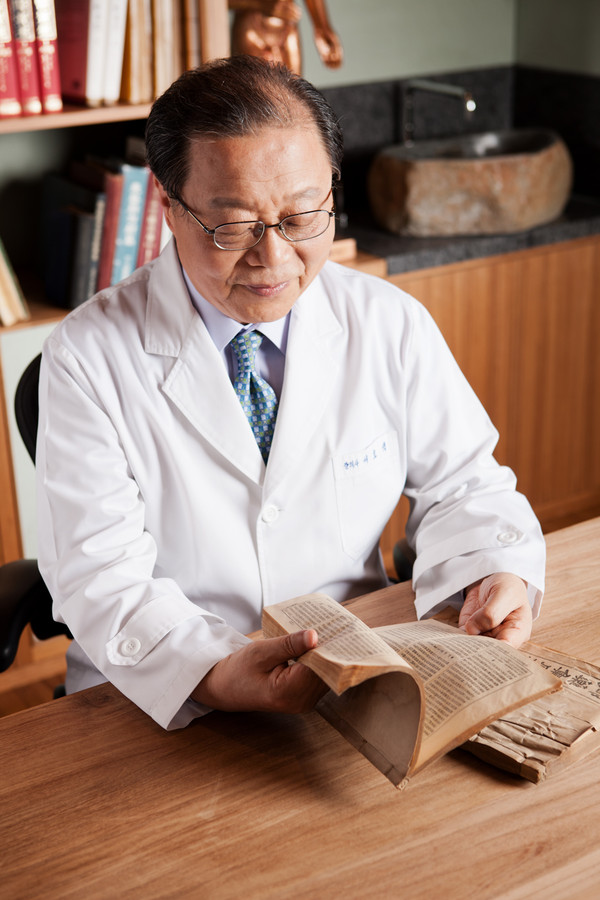
“Pyunkang-Tang,” according to Dr. Seo, treats and prevents various respiratory diseases, skin diseases, and other diseases by strengthening lung function and improving immunity.”
He said: “As a result, Pyunkang-Tang has the best effect on preventing COVID-19, including the recent epidemic of Omicron variant, by increasing human immunity. The surest way to beat COVID-19 is when your tonsils are healthy.”
Related to this, Director Seo is inviting the ambassadors and their spouses to an explanation meeting on how to stay away from the COVID-19 pandemic.
The other two topics are the subject that cancer is not a disease and Director Seo’s possibility of becoming the next chairman of Korea Baduk (Go) Federation.
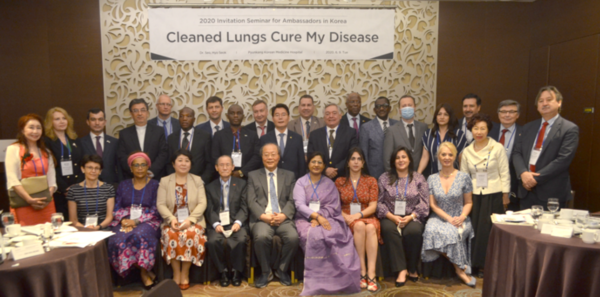
According to a report by World Health Organization (WHO) on May 4, 2020, WHO welcomes innovations around the world including repurposing drugs, traditional medicines and developing new therapies in the search for potential treatments for COVID-19.
WHO recognizes that traditional, complementary and alternative medicine has many benefits and Africa has a long history of traditional medicine and practitioners that play an important role in providing care to populations. Medicinal plants such as Artemisia annua are being considered as possible treatments for COVID-19 and should be tested for efficacy and adverse side effects.
Africans deserve to use medicines tested to the same standards as people in the rest of the world. Even if therapies are derived from traditional practice and natural, establishing their efficacy and safety through rigorous clinical trials is critical.
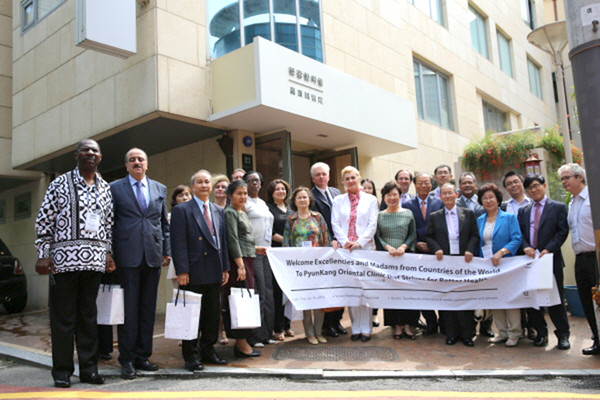
African governments through their Ministers of Health adopted a resolution urging member states to produce evidence on the safety, efficacy and quality of traditional medicine at the Fiftieth Session of the WHO Regional Committee for Africa in 2000.
Countries also agreed to undertake relevant research and require national medicines regulatory agencies to approve medicines in line with international standards, which include the product following a strict research protocol and undergoing tests and clinical trials.
These studies normally involve hundreds of people under the monitoring of the national regulatory authorities and may take quite a few months in an expedited process.
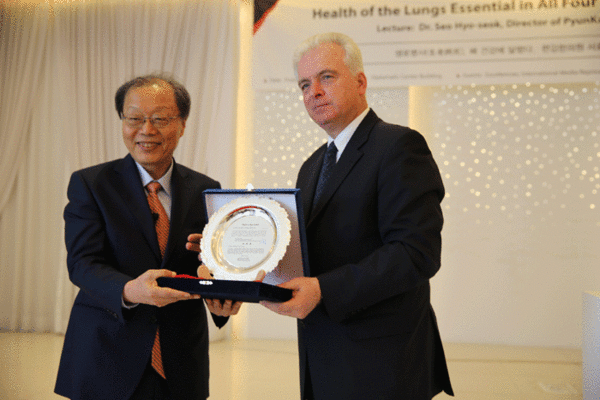
WHO is working with research institutions to select traditional medicine products which can be investigated for clinical efficacy and safety for COVID-19 treatment. In addition, the Organization will continue to support countries as they explore the role of traditional health practitioners in prevention, control, and early detection of the virus as well as case referral to health facilities.
Over the past two decades, WHO has been working with countries to ensure safe and effective traditional medicine development in Africa by providing financial resources and technical support. WHO has supported clinical trials, leading 14 countries to issue marketing authorization for 89 traditional medicine products which have met international and national requirements for registration.
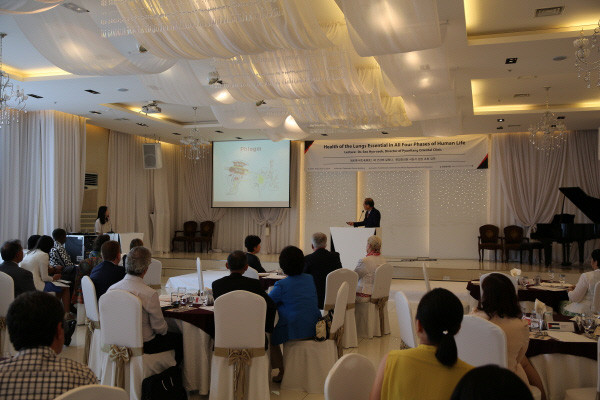
Of these, 43 have been included in national essential medicines lists. These products are now part of the arsenal to treat patients with a wide range of diseases including malaria, opportunistic infections related to HIV, diabetes, sickle cell disease and hypertension. Almost all countries in the WHO African region have national traditional medicine policies, following support from WHO.
As efforts are under way to find treatment for COVID-19, caution must be taken against misinformation, especially on social media, about the effectiveness of certain remedies.
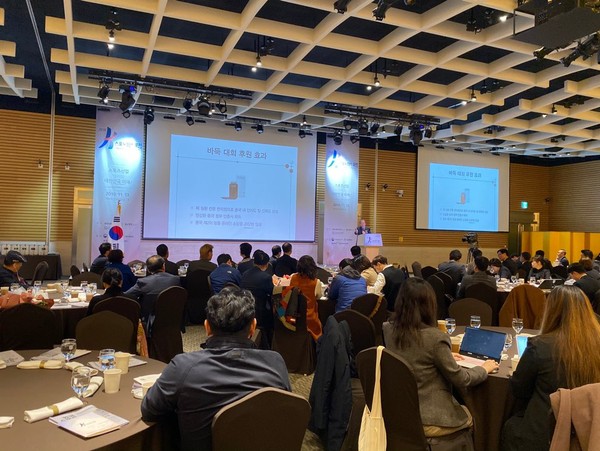
Many plants and substances are being proposed without the minimum requirements and evidence of quality, safety and efficacy.
The use of products to treat COVID-19, which have not been robustly investigated can put people in danger, giving a false sense of security and distracting them from hand washing and physical distancing which are cardinal in COVID-19 prevention, and may also increase self-medication and the risk to patient safety.
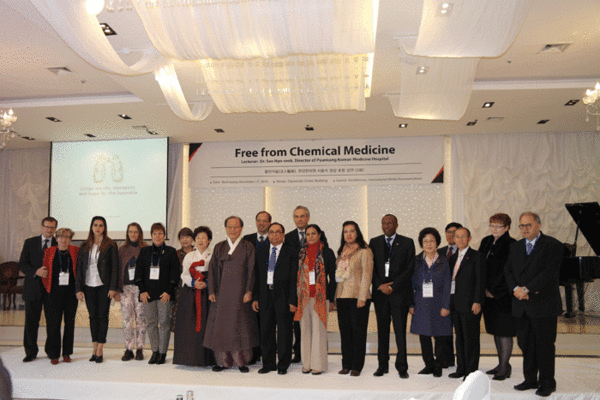
WHO welcomes every opportunity to collaborate with countries and researchers to develop new therapies and encourages such collaboration for the development of effective and safe therapies for Africa and the world.
There is another instance suggesting the existence of efficacy in the Oriental medicine in controlling the spread of COVID diseases.
According to a publication, Science Direct, in December 2021, use of Oriental herb medicine has a measure of good effect in the prevention and control of COVID-19 pandemic.
According to the article, severe acute respiratory syndrome coronavirus 2 (SARS-CoV-2) is the cause pandemic of COVID-19.
For many thousands of years, herbal products and dietary plants have been prescribed for various diseases by traditional healers. Thus, the aim of this review presents main herbal products, their source, characteristics, and potential antiviral actions concerning COVID-19.
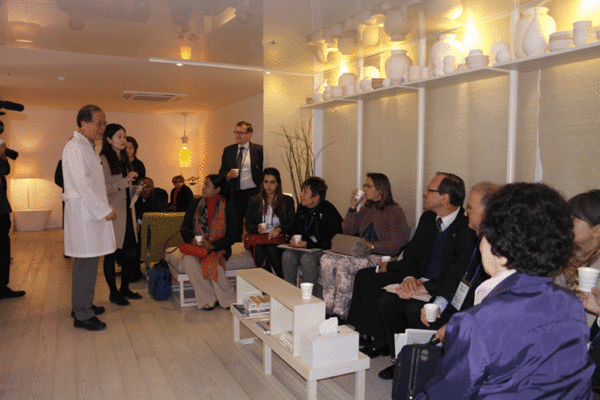
Publications on herbal products related to antiviral effects were searched from different databases, such as Web of Science, Google Scholar, Medline, Scopus, and PubMed, until August 2021, using English key terms. According to different studies, there are so many important medicinal plants with antiviral activity, which can be used for viral infections or can be prescribed as supportive treatment. It is said that lack of information on the safety profile and amount of dose for different diseases is some of the limitations of medicinal plants.
COVID-19, according to the article of Science Direct, induces an inflammatory immune response. Release of inflammatory cytokines in cases of COVID-19 leads to a dysregulation of cytokine storm and immunity, acute respiratory distress syndrome, and multiorgan dysfunction. currently, various type of vaccine is available to prevent the COVID-19 pandemic but deliverability is still a challenge especially for developing countries.
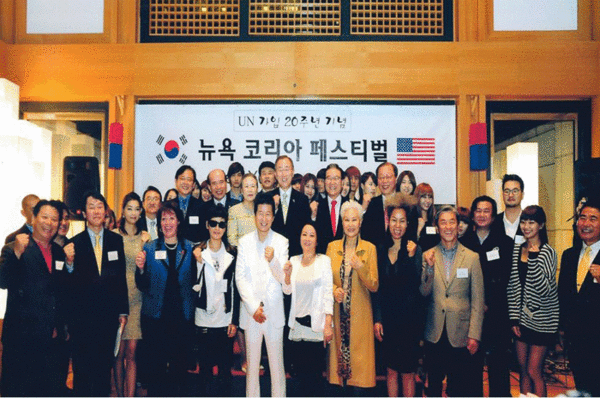
Different findings suggested that herbal medicine can reduce the severity and prevent COVID-19. China and India use herbal medicine with modern medicine parallelly to enhance the immunity of patients.
Hanyak (traditional Chinese medicine) showed appreciable results in improving clinical symptoms, reduce mortality, and recurrence rates of the virus.
Previous studies revealed that Echinacea supplementation may be related to a reduced level of pro-inflammatory cytokines TNF, IL-6, IL-8, and increase the anti-inflammatory cytokine IL-10.
Interestingly, curcumin has been revealed in-silico studies to prevent the entry of the SARS-CoV-2 into cells, and viral replication, while a recent experimental finding has shown that bromelain may also inhibit viral entry into cells.
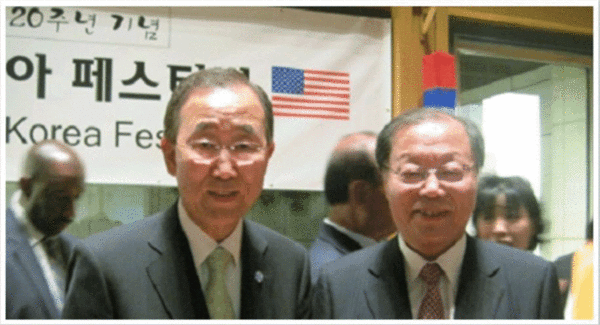
Furthermore, potential specific antiviral agents such as the decoy mini protein CTC-445.2d, protease inhibitors, mainly against the main protein, nucleoside analogs, such as molnupiravir, and compounds blocking the replication transcription complex proteins, such as plitidepsin and zotatifin are under investigation against COVID-19.
Herbal medicines have also helped to alleviate the effects of infectious diseases such as SARS-CoV-2.
Evidence supports that herbal medicine may be effective in reducing and managing the risk of COVID-19. The use of herbal medicine as an alternative remedy for COVID-19 in combination with modern medicine, and has released several recommendations on herbal therapy.
Since many botanical drugs show antiviral efficacy, the use of herbal medicine for therapeutic purposes should not be underestimated.
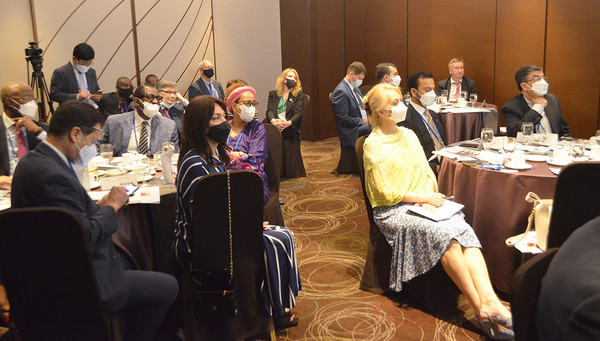
Currently, well-known herbal medicines with antiviral activities are being used as an additional treatment to suppress SARS-CoV-2, since conventional treatments are still not well succeeded.
In children, rhinorrhea, abdominal pain, and diarrhea are faced while the common symptoms are similar with adults. Cases with comorbidities or older patients having (immunodeficiency, digestive, and endocrine disease cardiovascular, hypertension, HIV, respiratory (TB), cerebrovascular, etc.) are more predisposed to severe forms of viral cases.
The Ethiopian government, according to Science Direct, had also used medicinal plants as an immunity inducer. But there is a piece of false information, regarding which type of medicinal plants are used for the disease.
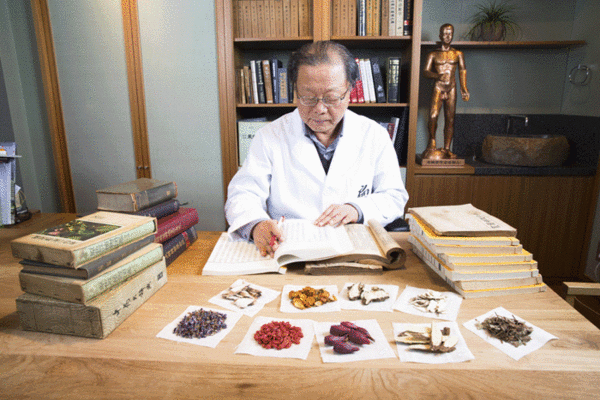
Traditional Chinese medicine, according to Science Direct, seems to have revealed encouraging results in reducing the rate of mild, severe, overall mortality, and shortening total disease duration.
When combined with modern biomedicine, herbal medicines could exert antiviral, relieve chronic obstructive pulmonary disease and hypoxemia, immunoregulatory, and anti-inflammatory, activities. Similarly, traditional medicines are used for the management of COVID-19 in parallel with modern medicine and vaccinations in India.
Based on the sign and symptoms of COVID-19 infection can be classified as “wet, heat, congestion,” in the respiratory system. According to Oriental medicine, lung function is the first affected part of the body. “Wet” refers to the factor with sticky and high turbidity that can lead to prolong the disease severity and damage the body function. “Hot” refers to the factor with hot, dry, and rising turbidness that can lead to the virus. “Congestion” is a contributing factor that can affect blood circulation and cause symptoms such as pain.
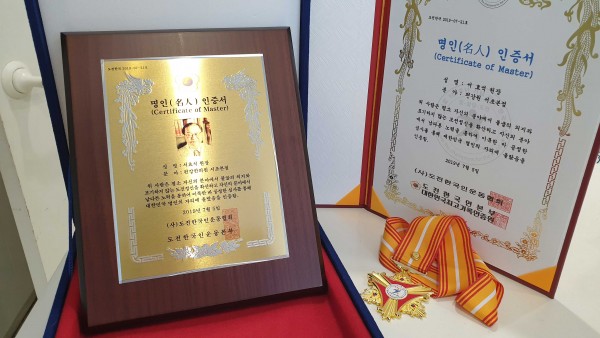
Home preparations, like the use of medicinal plants supported by the relevant establishments, can serve as an alternative option to combat COVID-19 in Ethiopia. Some medicinal products such as garlic, ginger, turmeric, chili, lemon, hot water with salt would be used for viral suppression.
COVID-19 patients with mild infection, according to Science Direct, often have a fever, headache, sweat, thirst, dry cough, sore throat, red tongue tip, and floating pulse. Based on the management it is different from a severe case of the disease. According to theories of Traditional Chinese Medicine, they used the method of two types of prescriptions, “clearing lung heat and dampness” to treat the lung.
In the early course of COVID-19 management, if the infection cannot be easily controlled, respiratory failure, multiple organ failure, and death will be worsened, then serious infection should be considered.
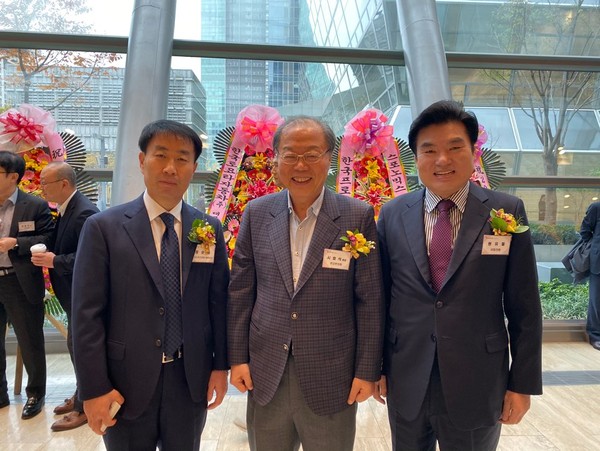
These infectious patients have the following main manifestations: high-grade fever, dry cough, breathing difficulty, sweating, chest stiffness, fatigue, nausea, bloating, red or dark red tongue, yellow coating, and oily. Some of the preventive and supportive management of COVID-19 through tempering the immune system G. glabra, Thymus vulgaris, Allium sativum, Althea officinalis, and ginseng may become effective.
Here is another study suggesting the existence of medicinal efficacy of Hanyak (Oriental Medicine) against COVID-19 pandemic.
According to study results named “The Role of Traditional Chinese Medicine in COVID-19: Theory, Initial Clinical Evidence, Potential Mechanisms, and Implications” by Jianghong Liu, Jessica Wang, Xin Liu, Humphrey Shen published on Oct. 27, 2021, traditional Chinese medicine has played a significant role in combating COVID-19 in China. However, understanding of the efficacy and mechanisms of the Oriental medicine in treating COVID-19 remains limited. Thus, it is important to stimulate further discussion based on early empirical evidence.
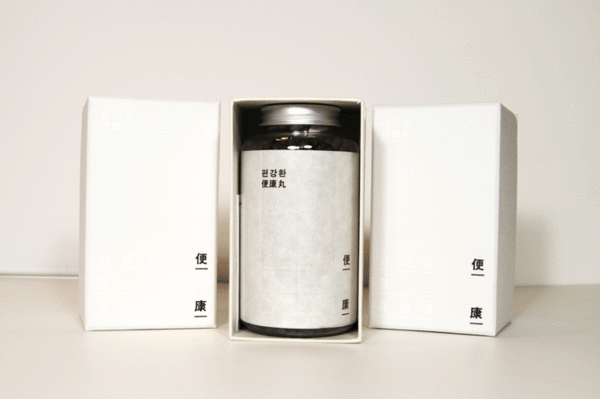
A literature search was conducted on PubMed, PsycInfo, and Google Scholar between December 2019 and January 2021. Observational studies, retrospective studies, case studies, cohort studies, and randomized controlled trials with at least a published English abstract were inspected and included in the final review.
Results: In general, herbal medicine has been shown to improve clinical symptoms, patient prognosis and mortality, and inflammatory markers, especially when paired with Western medicine.
Potential mechanisms of action involve bioactive compounds preventing the virus from binding to the angiotensin-converting enzyme 2 of the host cell, inhibiting viral replication after its penetration into the host cell, as well as counteracting the proinflammatory overreaction of the immune system. Other Covid modalities, including acupuncture and moxibustion, qigong, and tuina and acupressure for COVID-19 treatment have not been well investigated.
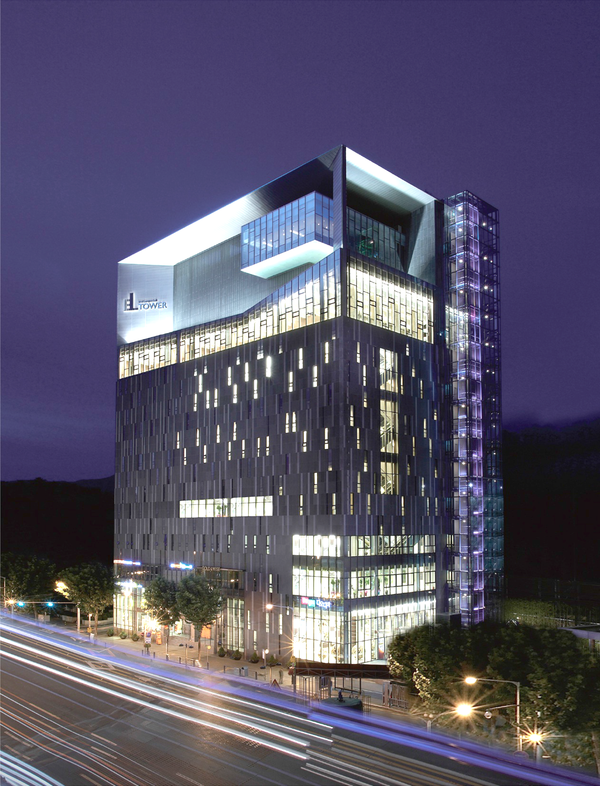
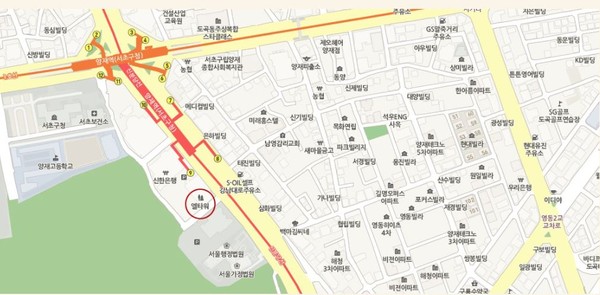
서효석 편강한의원

